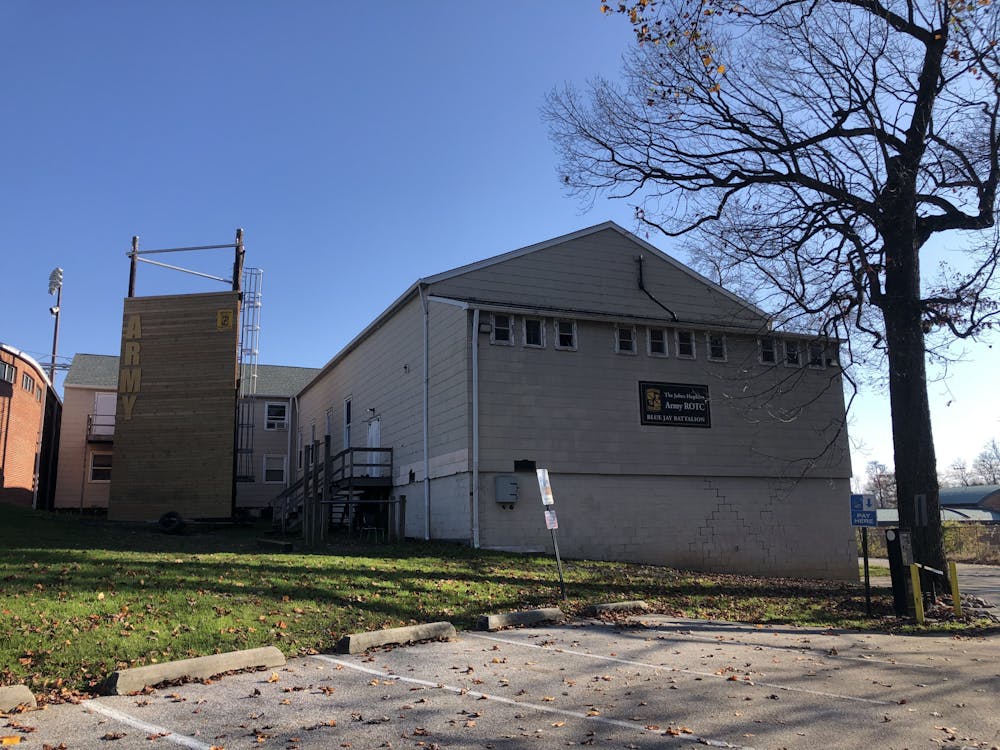The Stavros Niarchos Foundation (SNF) Agora Institute hosted a student forum titled “Closing the Civilian-Military Divide” on Feb. 10. During the event, panelists discussed misconceptions about the U.S. military with Hopkins students.
The panel featured Grace Park, a visiting Agora research fellow and former U.S. Army captain, and Lieutenant Colonel Angelique Pifer, an Army strategic intelligence officer and current professor of Military Science for the Hopkins Army Reserve Officers’ Training Corps (ROTC).
Park highlighted that the Agora decided to host the event after observing the public’s misconceptions about the military, namely due to its role in domestic civil unrest.
“I’ve been frustrated by the divide that has come about as a result of that,” they said. “This divide has come about for numerous reasons, some of those being the Vietnam War and smaller-scale conflicts where the military has been deployed on U.S. soil.”
In an interview with The News-Letter, School of Advanced International Studies graduate student Natalie Boyse emphasized that the event offered a new perspective on the military.
“The percentage of Americans that interact with the military on a regular basis is so small, so it can be such a foreign concept depending on what circles you’re in,” she said. “It’s great to have events like this because it helps bridge the civilian-military divide and educates people on a basic level about what life is like for the military and the kind of sacrifices military families make.”
The Hopkins ROTC is the oldest program of its type in the nation. Boyse found this fact to be interesting, considering how little she knew about the ROTC during her undergraduate time at Hopkins.
“I knew people in the ROTC program, but it doesn’t have a lot of visibility on campus or seem like a big part of the school,” she said. “It’s good that this event was an opportunity to shed some light on the program.”
Pifer explained the different functions of the military’s three components. The National Guard, which is mandated by the Constitution, allows each state to maintain a militia to serve as its respective governor deems necessary, such as for natural disasters or COVID-19 relief. They are typically part-time soldiers who can also be mobilized for national events by the President.
Similarly, the Army Reserve serves on a part-time basis under the president as its commander-in-chief. It provides service and support capabilities, both for individual states and federal operations.
The third group is the active-duty force, which consists of full-time federal soldiers.
In an email to The News-Letter, senior Kayla Ostrow expressed her appreciation for the thorough explanations provided about the different service branches.
“I had a vague idea of the differences previously but hadn’t heard it laid out so clearly. It clarified a lot about the difference between the national guard and standing army,” she wrote.
During the event, Pifer explained that the active-duty military can be called upon to serve on U.S. soil, but those instances are typically limited in scope.
“In the past the active duty has been deployed for the 1992 L.A. riots, COVID relief, the protection of federal buildings and wildfire response. The scope of the situation drives what component of the military is employed,” she said. “Such deployment is typically very controversial, so it only happens in dire circumstances.”
The panelists also explored the military’s use of citizen technologies and research. Park listed inventions, such as the Global Positioning System, EpiPens, freeze-dried food, cargo pants and research developments regarding post-traumatic stress disorder that are critical to the military’s operations.
Pifer stressed that these resources allow the military to work more efficiently.
“Academic research helps a lot because it allows us to operate a lot faster. For instance, public health research has helped us learn a lot about COVID and how to slow the spread,” she said. “Also, various levels of funding are not easily accessible to the military.”
As a general rule, members of the military are instructed to separate their personal political beliefs from their duties as a soldier. Therefore, Park explained that there is not an active effort to build cohesion among service members since rules entirely govern military life.
“Your beliefs don’t have to match because that’s what makes you unique. The military is only a small cross-section of America, and I would be scared if everyone had the same beliefs,“ they said.
Chris H. Park, a member of the SNF Agora Institute’s Student Engagement Board, is a News & Features Editor for The News-Letter. He did not contribute reporting, writing or editing to this article.

















